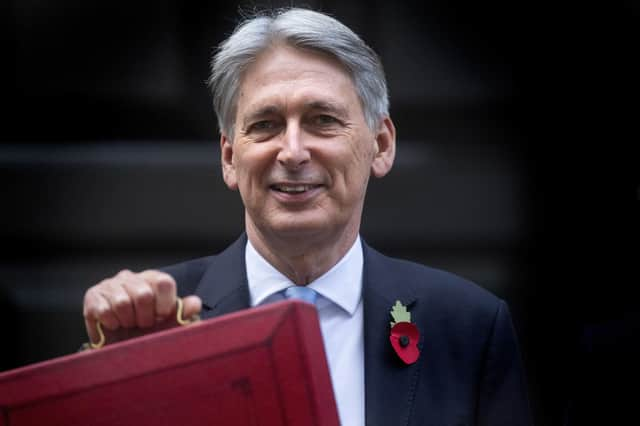Former chancellor Philip Hammond avoids punishment over lobbying watchdog rebuke
This article contains affiliate links. We may earn a small commission on items purchased through this article, but that does not affect our editorial judgement.


Conservative former chancellor Philip Hammond will not be punished despite being rebuked for using his government connections to assist a bank he now advises.
The Cabinet Office decided against sanctioning Lord Hammond of Runnymede after Advisory Committee on Business Appointments (Acoba) chair Lord Pickles said it was an “unwise step” for him to contact a senior Treasury official about a project developed by OakNorth.
At a glance 5 key points:
- Former chancellor Philip Hammond used connections to assist Oaknorth a bank he now advises
- Chair of Advisory Committee on Business Appointments Lord Pickles said it was an ‘unwise step’
- Lord Pickles wrote to Cabinet Office, however there will be no sanctions issued
- It was noted it was not thought to be a deliberate breach of rules
- Decision letter said rules needed to be ‘strengthened and clarified’.
Advertisement
Hide AdAdvertisement
Hide AdThe Tory peer argued he emailed Charles Roxburgh, the second permanent secretary at the Treasury, in a bid to establish that senior officials in the department were aware the bank was offering free support to aid the “Covid pandemic national response”.
What did the decision letter say?
Lord Pickles wrote to the Cabinet Office with his findings and said Lord Hammond’s use of his contacts in government “in this way was not consistent with the intention of the rules and was not acceptable”.
But Lord True, a minister in the department, noted that the Acoba chair did not believe it was a deliberate attempt to breach the rules.
“In that light, although we concur with your conclusion, we do not believe further sanctions should be taken given the particular circumstances of this case,” Lord True said in a letter to the chair.
Advertisement
Hide AdAdvertisement
Hide Ad“We also note there has already been public criticism from your committee.”
The letter from Lord True also said: “More broadly, we recognise that the Rules, and the process surrounding them, should be strengthened and clarified.
“We will take steps to highlight to departments that in their communications they should be conscious of the restrictions on direct engagement with those subject to business appointment conditions.”
A message from the editor:
Thank you for reading. NationalWorld is a new national news brand, produced by a team of journalists, editors, video producers and designers who live and work across the UK. Find out more about who’s who in the team, and our editorial values. We want to start a community among our readers, so please follow us on Facebook, Twitter and Instagram, and keep the conversation going. You can also sign up to our email newsletters and get a curated selection of our best reads to your inbox every day.
Comment Guidelines
National World encourages reader discussion on our stories. User feedback, insights and back-and-forth exchanges add a rich layer of context to reporting. Please review our Community Guidelines before commenting.
